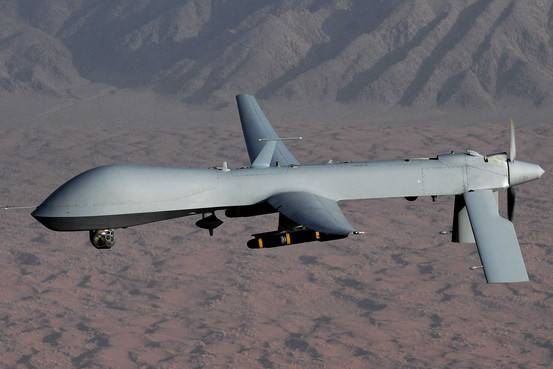During this year alone, twenty US drone strikes have reportedly taken place in Pakistan’s tribal areas which are almost always condemned by the government but continue regardless. The fact is that several amongst these drone strikes are a result of intelligence-sharing between Pakistan and the US. It is widely believed that the drone strikes, which successfully targeted Baitullah Mehsud and Hakimullah Mehsud, were in fact requested by Pakistan and the US merely obliged.
Most recently, TTP chief Mullah Fazlullah narrowly escaped a drone strike in the Nangarhar province of Afghanistan, who is a prime target for Pakistan. Pakistan’s military operations against militants in FATA, the approaching withdrawal of foreign forces from Afghanistan and victory for Ashraf Ghani in the presidential elections have led to a positive change; some even define it as a paradigm shift. Ashraf Ghani’s encouraging remarks towards Pakistan and refusal to proceed with a defence deal with India to placate its concerns, rare statements by ISAF and US military commanders acknowledging degradation of the Haqqani network as a result of Operation Zarb-e-Azb and the general positivity surrounding COAS General Raheel Sharif’s visit to the US indicate that the situation is changing. But, what does this ‘paradigm shift’ entail?
The three most active players – Pakistan, Afghanistan and the US – all have their concerns. Pakistan doesn’t want Afghan territory to be used against Pakistan in the event of a war. Since it cannot counter Indian influence in India, Afghanistan presents itself as the battlefield. An anti-Pakistan, India-friendly Kabul means a sandwiched Pakistan vulnerable in the face of Indian aggression. Afghanistan doesn’t want to host proxy wars anymore.
President Ashraf Ghani, unlike his predecessor Hamid Karzai, acknowledges Pakistan’s insecurities and is attempting to address them. He wants the two countries to work together to counter militancy. The US doesn’t want Afghanistan and Pakistan’s tribal areas to be used to plot or launch attacks against its citizens. For al-Qaeda, it has only one plan. It would like to see the Taliban crushed too but it is willing to let them be brought to the table and reformed. Pakistan is helping with the former and it can help with the latter too, like no one else can. This is where that “double game” the US and others kept complaining about is going to come in handy. This could work.
The three entities cooperating towards the same end is just what the region needs. They will find themselves in a much better position to not only fight militants but also put pressure on them to reach a settlement President Ashraf Ghani may offer in the future. Of course, it’s easier said than done. All parties are guilty of crimes committed against each other, not one has a clean record, and it will be quite a challenge to build trust and sustain it during difficult times.






